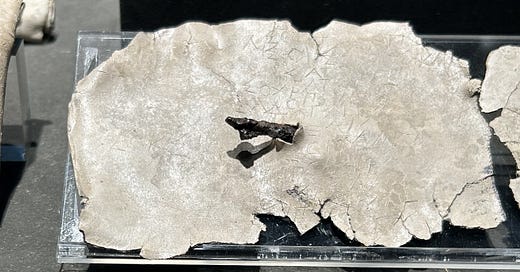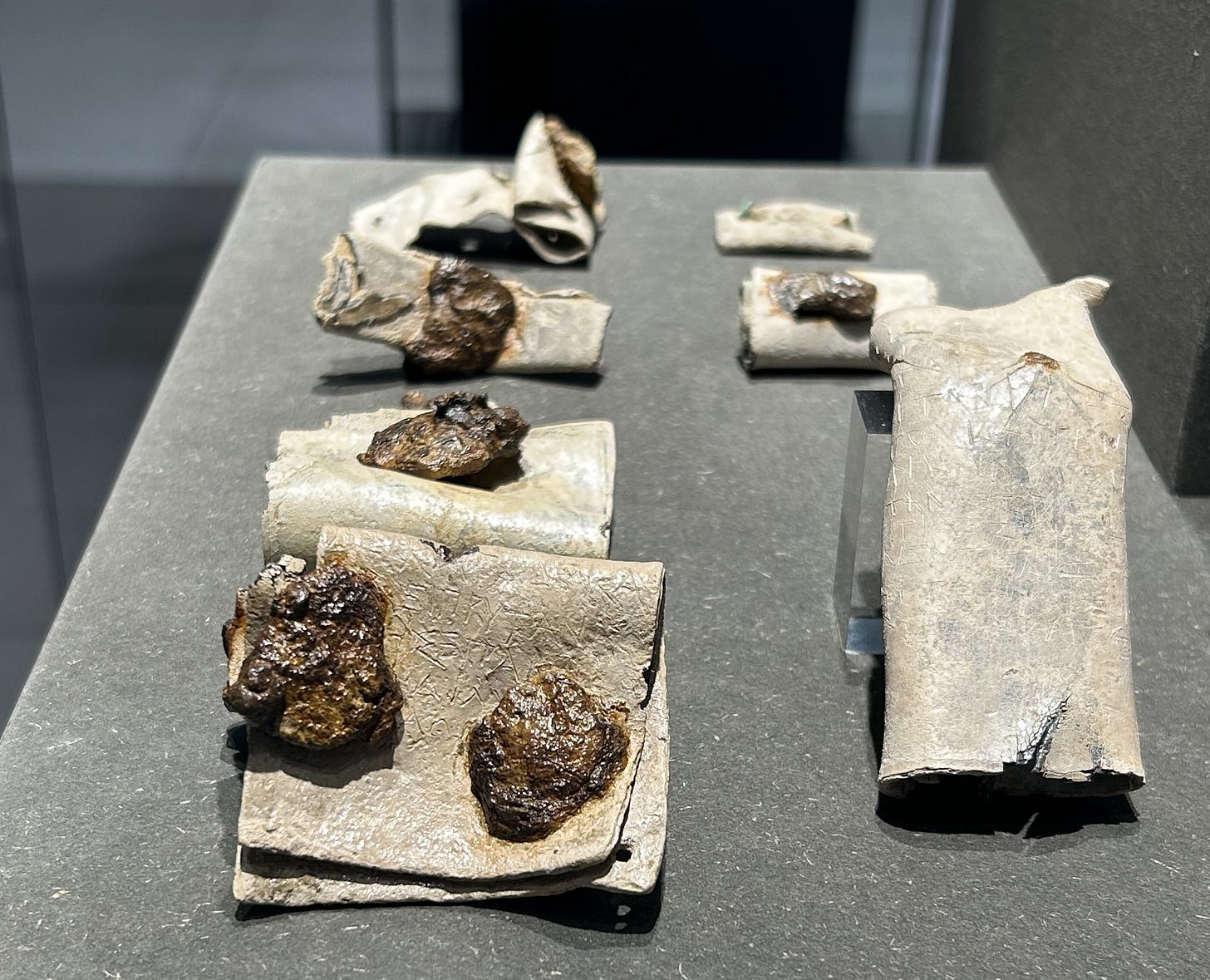Like many Brits, I’ve spent August in warmer climes. This year, my family and I travelled to the Greek island of Corfu, which is home to a gem of an archaeological museum. Inside you’ll find statues of Artemis, Medusa and Dionysus, as well as ancient coins, jewellery, jars and weapons, all discovered during various archaeological digs on the island.
I visited the museum on a boiling hot Friday. Face red and freckled from the heat, first to greet me in the air conditioned space was a stunning bronze statuette of Hercules dating to the Hellenistic period. What followed (across two floors and several rooms) was a deeply transporting journey into Ancient Greek life through displays of votive offerings, ceremonial lamps, ceramics, golden earrings, and much more. But there was one display case that really stood out.
The objects inside were relatively small. At first glance they looked like they could be folded paper, with wax seals. But they weren’t. They were strange. Thicker than paper, the artefacts were actually made from thin sheets of lead. They had inscriptions scratched upon them and were folded into a letter-like packages. Driven through each of these small packages were fat metal nails that had swollen with rust and time. The items were described as ‘curse tablets’.
Usually found within graves, curse tablets would address the gods of the underworld to ask for misfortune to befall upon foes, enemies or people that had done the curser wrong. They have sometimes been found with pieces of clothing or hair, which were thought to have strengthened the curse.
My eyes are not keen enough and my Latin is not strong enough to decipher the words on the items I photographed. But we do know from previous finds that curse tablets contain fascinating information. Back in 2003, five such tablets were found within the 2400 year old grave of a young Athenian woman, near Piraeus. The target of one of the tablets were Athenian tavern keepers Demetrios and Phanagora. The inscription reads:
“Cast your hate upon Phanagora and Demetrios and their tavern and their property and their possessions. I will bind my enemy Demetrios, and Phanagora, in blood and in ashes, with all the dead…”
Curse tablets were not confined to the Ancient Greeks. Indeed, there are surprisingly common finds within Ancient Egyptian, Greek and Roman archaeology. Many, dating to the Roman period, have been found in England. One such was discovered in London and is now held at the British Museum. It reads:
"I curse Tretia Maria and her life and mind and memory and liver and lungs mixed up together, and her words, thoughts and memory; thus may she be unable to speak what things are concealed, nor be able."
So, the next time a neighbour, friend or foe does you wrong, instead of seeking an apology perhaps scratch their name onto a piece of lead and bury it in the ground. It worked for the ancients, after all!








